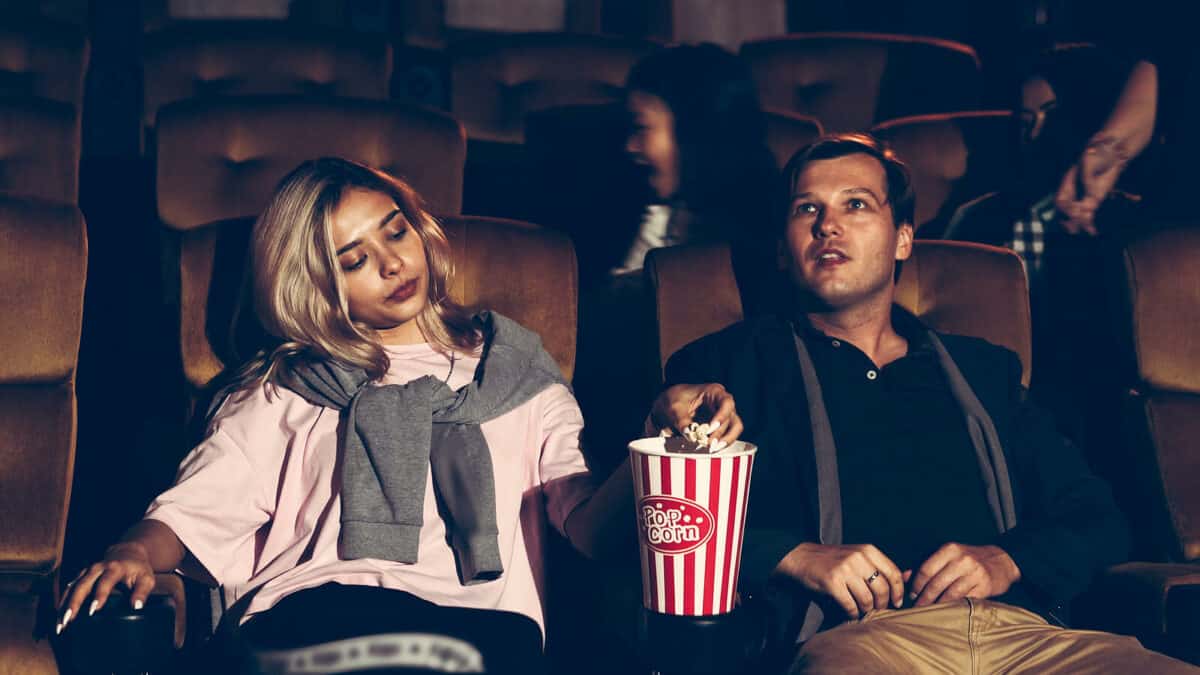- The Connection Between Hearing Loss and Dementia - July 30, 2024
- The Advantages of Rechargeable Hearing Aids - July 16, 2024
- How to Enjoy Music Festivals While Protecting Your Hearing - July 3, 2024
The allure of the silver screen has captivated audiences for decades, providing a gateway to alternate realities and emotional journeys. However, amidst the thrill and excitement, there’s a threat that often goes unnoticed—the potential risk to our hearing health. What are the ways that movies, with their immersive soundscapes and explosive audio effects, can pose a danger to our auditory health?
The Decibel Dilemma
Movies are designed to evoke emotions and create a sense of realism, and sound plays a pivotal role. The dynamic range of audio in films, from whispers to explosions, can expose audiences to extreme variations in decibel levels. While the average conversation hovers around 60 decibels, action scenes or intense musical scores can easily reach the 100-decibel mark, a level considered harmful with prolonged exposure.
Cinematic Intensity vs. Hearing Sensitivity
Modern filmmaking thrives on intense audio experiences. The goal is to immerse the audience fully in the narrative, making them feel every explosion, musical crescendo or whispered revelation. However, the intense nature of these sounds can lead to temporary or even permanent hearing damage, especially if the volume is consistently elevated.
The Impact on Hearing Health
Exposure to loud noise can lead to temporary or permanent changes in hearing.
- Temporary Threshold Shift (TTS): Prolonged exposure to loud movie soundtracks can cause a temporary shift in your hearing threshold. This means that after leaving the cinema, you might notice a temporary reduction in your ability to hear softer sounds.
- Permanent Hearing Damage: Regular exposure to high decibel levels without proper protection may lead to permanent hearing damage. This can manifest as noise-induced hearing loss (NIHL), a condition that accumulates over time and may become irreversible.
The Cinematic Culprits
Several factors contribute to the potential harm movies can inflict on our hearing:
- Volume Levels in Cinemas: Theatres are designed to deliver a powerful audio experience, and this often involves cranking up the volume. While this enhances the cinematic experience, it also raises the risk of hearing damage for unsuspecting moviegoers.
- Home Entertainment Systems: With the rise of home theatres and surround sound systems, individuals are exposed to cinematic audio intensity without the regulatory measures in place at commercial cinemas. The convenience of watching movies at home may inadvertently contribute to increased hearing risks.
- Earphone and Headphone Use: Streaming movies on personal devices with earphones or headphones might seem harmless, but having sound delivered directly into the ears can intensify the impact on hearing health.
Protective Measures
Here’s what you can do to protect your hearing health:
- Use Earplugs: Consider using earplugs specifically designed for concerts or loud environments when attending movies with explosive soundtracks. These earplugs are designed to reduce volume levels while maintaining sound clarity.
- Invest in Noise-Canceling Headphones: If you enjoy watching movies at home or on personal devices, invest in noise-canceling headphones. These headphones can block external sounds, allowing you to enjoy your movie at a lower, safer volume.
- Be Mindful of Volume Settings: Whether in a cinema or at home, be mindful of volume settings. If you find yourself needing to shout to be heard or if others can hear your movie from a different room, the volume is likely too high.
- Take Breaks: Prolonged exposure to loud sounds can increase the risk of hearing damage. Take breaks during loud sequences to give your ears a chance to recover.
- Limit Exposure: While the temptation to indulge in cinematic extravaganzas is strong, limit your exposure to loud environments, especially if you’ve recently experienced loud sounds.
- Educate Others: Spread awareness about the potential risks of loud movie environments, encouraging friends and family to adopt protective measures.
Hearing Loss Prevention
Remember, the true beauty of a film lies not just in what you see but in how well you can hear it—safely and without harm to your sense of hearing.
Another important step is to schedule regular hearing checkups to monitor your auditory health. If you notice hearing loss early, you’ll be able to take more proactive measures to prevent further damage. Call us today to book a hearing test and learn more about your hearing health and hearing needs.

